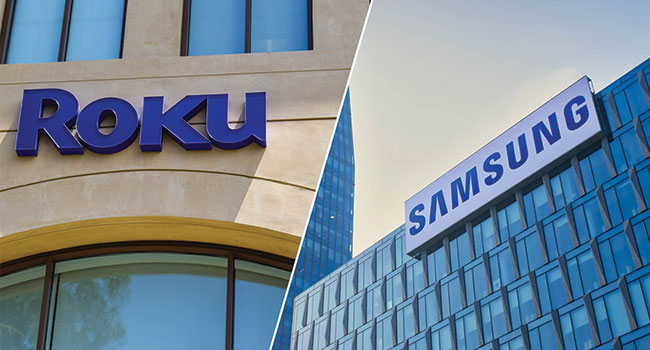
Roku, Samsung Smart TVs Have Easy-to-Exploit Vulernabilities
Consumer Report says its testing found that Roku devices and Samsung Smart TVs have security flaws that make them vulnerabilities to hackers.
- By Sydny Shepard
- Feb 09, 2018
The basics of Internet connected things is that they can be vulnerable to hackers, but a lot of the time IoT devices have safeguards in place to ensure that customers and users are safe from cybercriminals. Consumer Reports, however, has found that Roku devices and Samsung Smart TVs might be missing some of the most basic safeguards that keep them from being vulnerable.
The magazine reported that Roku devices and Samsung Smart TVs have easy-to-exploit security vulnerabilities according to some tests they carried out. They found that a relatively inexperienced hacker could change channels, play offensive content or turn up the volume from thousands of miles away.
Problems with security vulnerabilities, according to Consumer Reports, seems to be present in all Roku devices. The publication wrote about similar instances with the TCL TV model using the Roku system. They said hackers could get in by manipulating the application programming interface, or API, which allows developers to make their own products work on the Roku platform.
"To become a victim of a real-world attack, a TV user would need to be using a phone or laptop running on the same WiFi network as the television, and then visit a site or download a mobile app with malicious code. That could happen, for instance, if they were tricked into clicking on a link in a phishing email or if they visited a site containing an advertisement with the code embedded," according to the report.
In a blog post, Roku's Gary Ellison said the report mischaracterizes the features of the platform and that the programming interface can be turned off to avoid these kinds of attacks.
The Samsung vulnerability was harder to "spot" according to the report. "It could be exploited only if the user had previously employed a remote control app on a mobile device that works with the TV, and then opened the malicious webpage using that device."
Samsung told the publication it would evaluate the situation.
About the Author
Sydny Shepard is the Executive Editor of Campus Security & Life Safety.